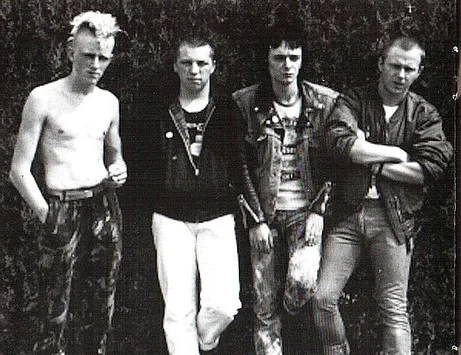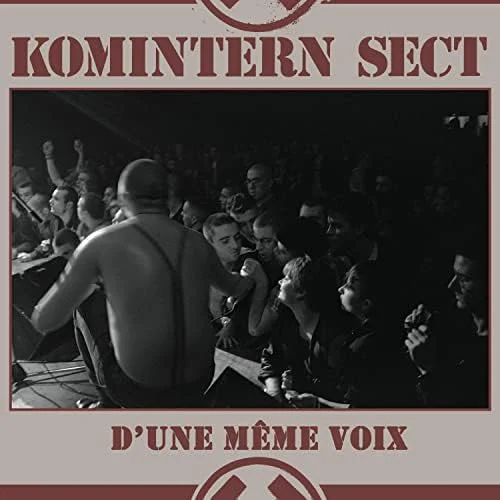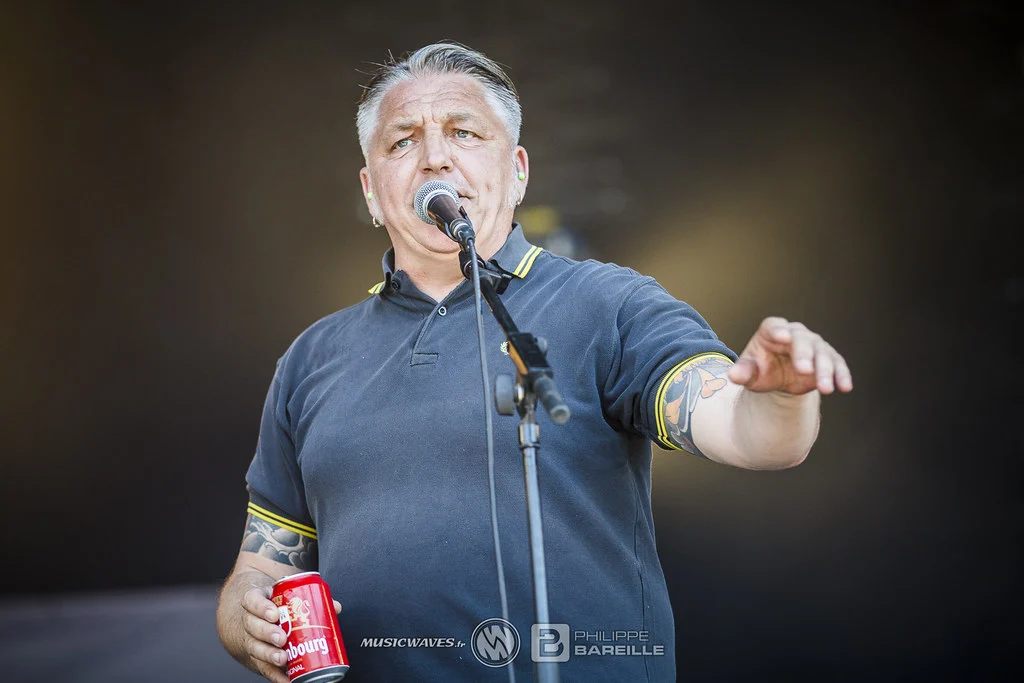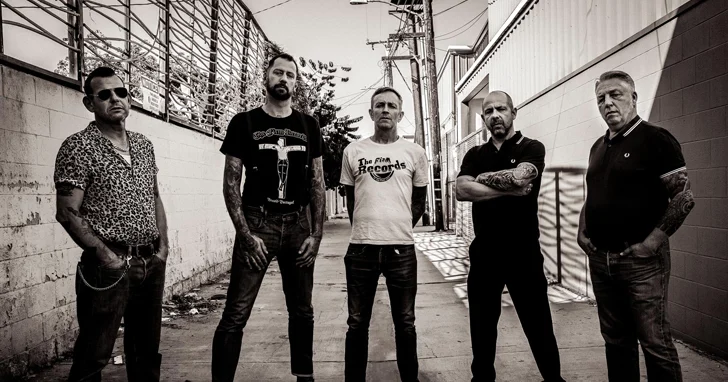In the early months of 1980, in the provincial city of Orléans (France), four disillusioned high-school friends decided they had heard enough empty promises from the established music industry. United by a shared passion for raw, unvarnished sound and lyrics that spoke directly to working-class frustrations, they pooled their savings and launched their label, Chaos Production. This bold move would set the stage for one of France’s most enduring Oi! acts: Komintern Sect.
The band’s original lineup – led by the gravel-voiced frontman Carl Jahier alongside guitarist Vovott, drummer Thomoi and a revolving bass chair-cut its teeth in dingy rehearsal rooms and local youth centres. Their first major statement arrived in 1983, when they released Les Seigneurs de la guerre, an album bristling with defiance and social commentary. Its anthemic title track, with its pounding rhythm and Jahier’s uncompromising delivery, quickly became a rallying cry for fans who felt marginalised by both mainstream culture and the more militant fringes of the punk underground.

Three years later, Komintern Sect followed up with Les Uns sans les autres. Despite tighter production values, the record retained the band’s hallmark urgency. Songs like Solidarité and Pas De Quartier reinforced their commitment to unity and resistance, even as the broader punk scene fractured under ideological disputes. By mid-1986, those internal tensions – exacerbated by heated debates over politics and identity—proved too great to contain. Komintern Sect announced an indefinite split, leaving behind a dedicated fanbase and a pair of albums that had come to define the contours of French Oi!.
For nearly three decades, Carl Jahier and his erstwhile bandmates pursued separate paths. Jahier immersed himself in local activism and occasional studio collaborations, while Vovott and Thomoi explored other musical projects. Yet talk of a reunion lingered in corners of the punk community, fuelled by whispers at festivals and in fanzines. When the group finally reconvened in 2014 – with original members joined by Louis of Lion’s Law on second guitar and Mama of 8°6 Crew on bass – the announcement was met with widespread excitement. Long-time followers and a new generation of punks alike turned out for sold-out reunion shows across France.
Their comeback album, released in 2016 and simply titled D’une Même Voix (translated roughly to With One Voice), proved that Komintern Sect had lost none of its fire. Recorded for Contra Records and Baldy Sound Records, it showcased mature songwriting without sacrificing the band’s signature punch. Tracks such as Retour Aux Racines evoked nostalgic memories while “Avenir fermé” pointed to contemporary struggles. Emboldened by the new material, the band set off on extensive tours that took them from Parisian squats to stages in North and South America, where their message of solidarity resonated just as powerfully.

On 29 November 2024, in a poignant culmination of their journey, Komintern Sect played their final show—appropriately titled Le Dernier Combat – at La Marbrerie in Montreuil. The venue, packed with three generations of fans, erupted as the quartet delivered a blistering two-hour set that spanned their entire catalogue. It was a euphoric farewell: a testament to the enduring bond between the band and its community.

©, Phippe Bareille
Tragically, just six months later, Carl Jahier passed away in Orléans on 10 May 2025, aged 64, after a courageous battle with a degenerative illness. His passing marked the end of an era, but it also cemented his status as a defining voice in French punk and Oi!. More than forty years after those friends first formed a band in a quiet provincial city, Komintern Sect’s raw energy and uncompromising spirit continue to inspire—and their legacy, like their music, still echoes loudly.
